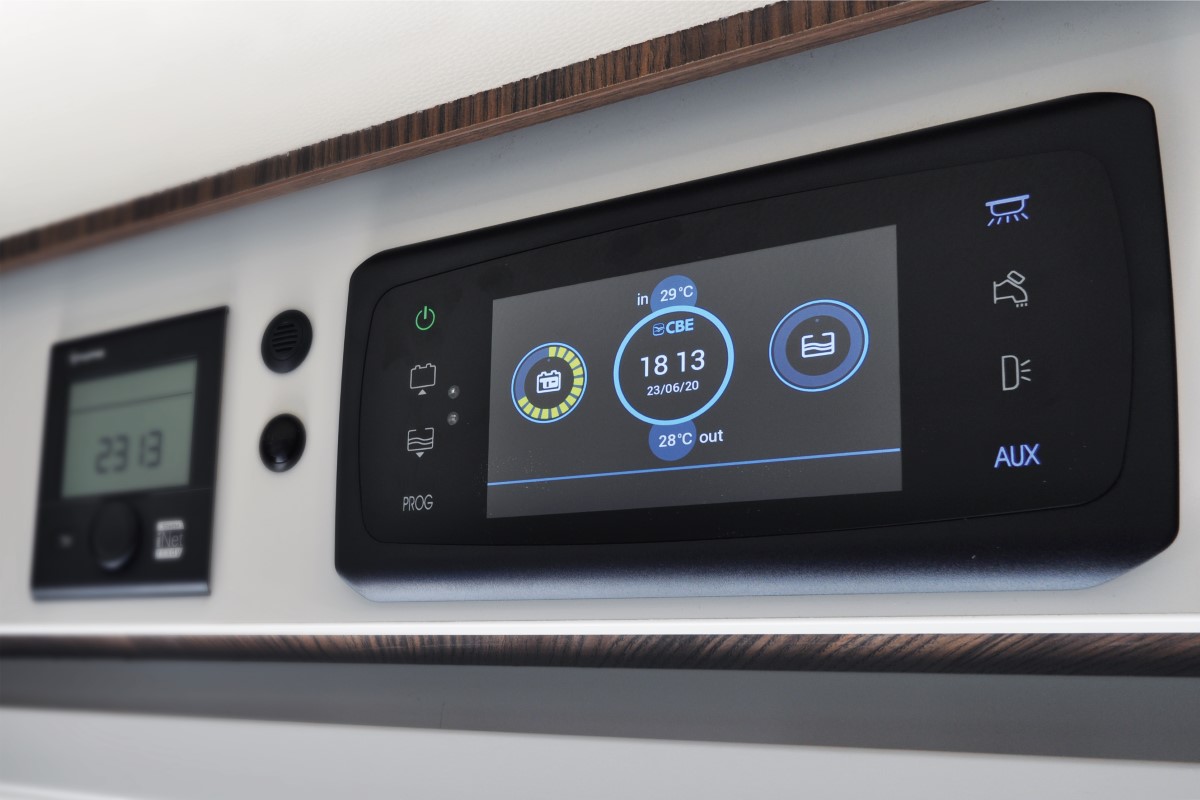CL-BUS by CBE now being fitted by OEM premium motorhome brands for improved connectivity
The new CL-BUS product range with LIN BUS connection developed and produced by CBE, which previewed as concept in 2019, is already being fitted by some OEMs of premium motorhome brands.
In an increasingly connected world, the recreational vehicle sector is having to evolve and use an increasing number of systems that communicate with each other, external equipment and other devices. CBE, as a manufacturer of 12V and 230V electrical systems for RVs, such as 12V modules, control panels, battery chargers, tank probes and lighting management nodes, has specifically developed its new CL-BUS (CBE LIN BUS) products with its advanced communication system to enhance RV connectivity.
“It took us a bit longer than expected to launch the new range of CL-BUS products to our customers,” says Paolo Moiola, co-managing director of CBE. “On the one hand, we had to redesign and engineer all the components that make up the systems, and on the other, we wanted to carry out long and thorough testing. The OEMs have rewarded us by adopting our systems because, above all, they consider them reliable. Our product had to be technologically contemporary, yet offer the end user a real advantage when using and managing the motorhome’s electrical system. The difference between CBE and its competitors does not lie in technology, as we all use or can use substantially the same communication protocol, but in the ease of use that we have always developed for our products and in the reliability and quality we have demonstrated over time”.
The range of products with LIN BUS communication system have gone from being a concept to being standard components on some premium motorhome brands, including Laika (Ecovip series) and Niesmann + Bischoff (iSmove series). Both these companies have installed the innovative control panel PL50, the DL40 distribution box and the ammeter, all using CL-BUS technology. And this year Rapido also added it to some of its most prestigious series.
“For now, only the hardware module for interfacing with the external worlds has been excluded”,said Paolo Moiola. “The decision on which equipment to communicate with our system is up to the customer. Our goal is to provide the tools that enable full connectivity. Our interface also has the possibility of being reprogrammed afterwards by the manufacturer using a USB key to integrate with new equipment,”.
By the end of 2021, it is estimated that the CL-BUS system will be installed on more than 2.000 motorhomes. The CL-BUS range was created to be compatible with systems that may be introduced in the future, without the motorhome manufacturer having to change the product codes. The project is based on the desire to provide a flexible system that can connect with any on-board equipment, but the choice of which systems or devices shall communicate with each other is left to the OEMs, who have maximum freedom.
Of course, CBE has also joined the CI-BUS platform, a standard developed in 2011, with the coordination of the CIVD (the German Caravanning Industry Association).
“In general, motorhome manufacturers have shown us they are well aware of the imminent evolution which, to some extent, is already in place, even if we are still at an early stage in the new generation of this technology,” said Dorian Sosi, co-managing director of CBE. “So far, collaborations between companies are limited compared to the future potential. Even CBE, despite its expertise and development of this new range, can still not have a complete view of all the possibilities of an interconnected system. Our product development is never finished because our system is constantly evolving, especially on the software side”.
CBE will still continue to produce its range of standard products; in fact, it expects to do so for a few more years as most sales will be from its more traditional technologies as the CL BUS system costs more than its standard products. But the revolution has started, and CBE has immediately identified its priorities in this “connectivity challenge”: to create efficient, reliable, durably designed products that are technologically advanced, always being updated and capable of transmitting data with any current and future systems.
That is not all, as one of CBE’s strengths is the simplicity of managing the product in case of repairs in the assistance and sales network. The operator must always be able to provide the best service so not to spoil the customer’s holiday.
Thus, a B2B service and configuration APP will also be developed to be used for system analysis and programming. The APP will be supplied to the manufacturer’s technicians as a working tool, but the system can also be used in areas such as the customer service network.

